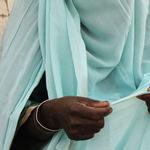A Sheikh speaks out against harmful practices against the girl child
Child marriage has nothing to do with poverty, but everything to do with a man’s want for an obedient wife, says Sheikh Naqasoub at a dialogue workshop at Red Sea University in eastern Sudan. He says further that Islam forbids harmful practices and that child marriage and Female Genital Mutilation (FGM) have documented negative health consequences for the girl child. As far as he is concerned, these harmful practices therefore are against religion.
In collaboration with the Center for Women and Children’s Studies at Red Sea University, Samia al-Nagar and Liv Tønnessen have conducted two recent studies on the project Assisting Regional Universities in Sudan and South Sudan (ARUSS). This week the Center gathered stakeholders for a dialogue workshop to discuss major findings. Among the stakeholders were a former ministers of education and representatives from the ministry social welfare, representatives from the health science academy, a range of parliamentarians from Red Sea State Assembly, Council for Child Welfare, NGOs, lawyers, a prominent sheikh and journalists.
The criminalization of FGM
Female genital mutilation (FGM) is still a common practice in Sudan. Nine out of ten women have been subjected to this practice. In 2009, a proposed ban on FGM in the National Child Act miserably failed to materialize. In spite of the failure of a national law against FGM, Red Sea State, located in eastern Sudan where FGM is widely practiced, succeeded to criminalize the practice. However, the investigation of the criminalization process in Red Sea, uncovered a “paper tiger” law that does not protect girls against FGM.
First, the law does not forbid all forms of FGM. Second, the law states that in order for the law to take effect, the Red Sea Minister of Health must issue a decree, something he still has not done six years after the law was enacted. Finally, the law does not stipulate any penalty for offenders. In reality, there is no law forbidding FGM in Red Sea State.
The participants at the workshop urged for a renewed demand for a law that criminalizes all forms of FGM. It is not possible to eradicate this harmful practice by law alone, but a law is important as it gives greater space for mobilization and sensitization among communities that practice it and the tribal leaders who encourage its continuation.
Drivers of child marriage
32.2% of married women ages 20 to 49 are married before age 18 in the Red Sea State. These women are frequently denied an education and pressurized to get married without their consent.
While poverty is often identified as the major driver of child marriage, in poverty struck Red Sea State the main driver of child marriage is tradition. The tradition to protect girls’ chastity is prominent, but men also marry younger brides in order to educate them to become obedient wives.
Child marriage remains legal under the Muslim Personal Law of 1991, and participants at the workshop identified several weaknesses in that law, including the fact that a guardian can contract a minor in marriage without her consent. “This needs to change. We need a stronger law” said a parliamentarian present at the workshop.
The fact that child marriage remains legal, also restrains awareness raising activities. As no state or national laws support intensive intervention against child marriage, it is difficult for anti-child marriage activists to advocate for the eradication of the practice without being seen as antigovernment.
When girls are married off at an early age, they are simultaneously taken out of school. A sign of positive change is therefore the increasing number of girls and young women continuing their schooling and even pursue higher education. However, they do so at a high social cost of being stigmatized as agir (“unfertile”) or bayra (“not demanded for marriage”). The former state minister of education called for a law making education mandatory for children and thereby urged parents within Red Sea State to educate their daughters, instead of increasing the number of girl brides.
The participants in the workshop highlighted the link between the two harmful practices in that they both are practiced in the belief that it protects girls’ chastity. If women are left uncut and/or marry not as children, this will lead to promiscuous behavior, something whichwould taint the honor of the family and the tribe. One participant noted the risk of mobilizing for the eradication of one without the other in that “ a decrease in one practice might lead to an increase in the other”.
There was broad agreement among participants for the need to work for abandonment from above through advocacy for laws to protect girls against violence, but also from below to change attitudes, specifically among practicing communities and tribal leaders, through awareness raising. In the words of a representative from an NGO, “research studies as the ones presented by the Center for Women and Children’s Studies at this workshop form a good basis for designing appropriate interventions”.
By Liv Tønnessen, Research Director, CMI
Publications

Weak law forbidding female genital mutilation in Red Sea State, Sudan

